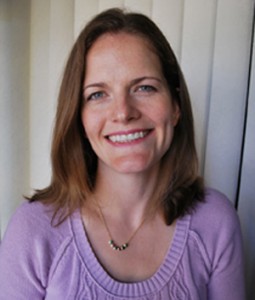By Matt Sinclair ’90
As Americans, it’s easy to think that the Information Age enables everyone with a computer to have access to almost any desirable tidbit of information. But the world is not quite that free. Indeed, even young democracies are not necessarily allowing news to flow to all their citizens.

Sarah Glacel '01
Sarah Glacel ’01, who serves as a senior audience research specialist for Radio Free Europe/Radio Liberty, Washington, D.C., conducts market research on how people in the former Soviet Union gain access to information. In Russia, Armenia, Belarus, Kyrgyzstan, and other countries in the former Soviet Union, the past several years have been a time of increased government control of information. This approach has made the work of RFE/RL even more important.
Founded in 1950, the organization promotes democratic values and institutions by reporting the news in countries where a free press is banned by the government or is not fully established.
Since the fall of the Soviet Union, the region has seen tremendous change. And while some leaders retained a Cold War mindset of controlling information, the people and society have evolved. “In theory, the ’90s were a really open time in Russia,” says Glacel. “Many people look to the Boris Yeltsin years from 1991 to 1999 and say it was freer, but the vast number of people were living in bad conditions.”
During Vladimir Putin’s time in office [1999-2008], living conditions improved and people had money for food and other necessities. As a result, Glacel says, they were willing to give up some freedoms as the government sought to gain a stronger hold on society.
But once again, the people of Russia have been looking to regain freedoms. “In the countries of the former Soviet Union, you get the sense that the media has reversed itself,” she says. “At Radio Free Europe, we’re working to ensure people in un-free societies have access to objective and alternative information and today that means using the Internet and other new technologies in addition to radio.”
Moreover, she sees the relationship between Russia and the U.S. improving in some ways. “The relationship is still cautious,” she says. “I like what President Barack Obama has done in being more strategic. The administration has done a good job of not pushing the Russians into a corner, while still acting in the best interests of the U.S. It’s not an easy balance.”
In 1994, Glacel followed in the footsteps of her sister and parents to become an exchange student. Indeed, her interests were not in Russia, specifically, but in being an exchange student. “I had a chance to go to Russia on a summer exchange.”
Without a doubt, it sparked an interest, and since her first experience, she’s been back too many times to count. Her husband is Russian, and his family still lives there. She began to learn the language as an exchange student. “Immersion is the best way to learn a language quickly,” she says.
At Lafayette, Glacel received a dual degree in Russian and Eastern European Studies (REES) and International Affairs. She later won a Fulbright Scholarship to study at Irkutsk State University in Irkutsk, Russia where she completed a graduate degree in history, in particular, the history of the environmental movement surrounding Lake Baikal. During that time, she also worked as a volunteer with Baikal Environmental Wave, a leading Siberian environmental organization that is fighting for the protection of the world’s largest, deepest lake and one of the largest freshwater lakes.
When looking at the people of Russia and their lives today, Glacel sees a land of opportunities and is optimistic that the country can become a true democracy, but she fears that policy makers, especially in Washington, have at times over the last 20 years pushed too hard and fast. “I don’t think the U.S. has always given the Russian people time to adjust to all the changes they have had to go through,” she says. “It doesn’t do any good to make them feel bad about themselves and their country,” she says.
When she hears people criticize Russia for not democratizing quickly enough, she recalls the words of American diplomat and political scientist George F. Kennan. Best known as the “father of containment,” Kennan said in 1951, “When Soviet power has run its course . . . let us not hover nervously over the people who come after, applying litmus papers daily to their political complexions to find out whether they answer to our concept of ‘democrats.’ Give them time; let them be Russians; let them work out their internal problems in their own manner. The ways by which people advance towards dignity and enlightenment in government are things that constitute the deepest and most intimate processes of national life. There is nothing less understandable to foreigners, nothing in which foreign influence can do less good.”
Indeed, time and hard work are often the ingredients to success, as Glacel’s years at Lafayette demonstrate. She’s thankful for the strong foundation she gained during college. “If you have really good professors — and there are a lot at Lafayette – and you invest the time, they’ll invest time with you,” she says. “That’s really important. It’s what helped me get the Fulbright. It helped me to develop my interest in the environmental movement in Russia and to study civil society in Russia. They helped me learn to ask the important questions I didn’t know how to ask.”
